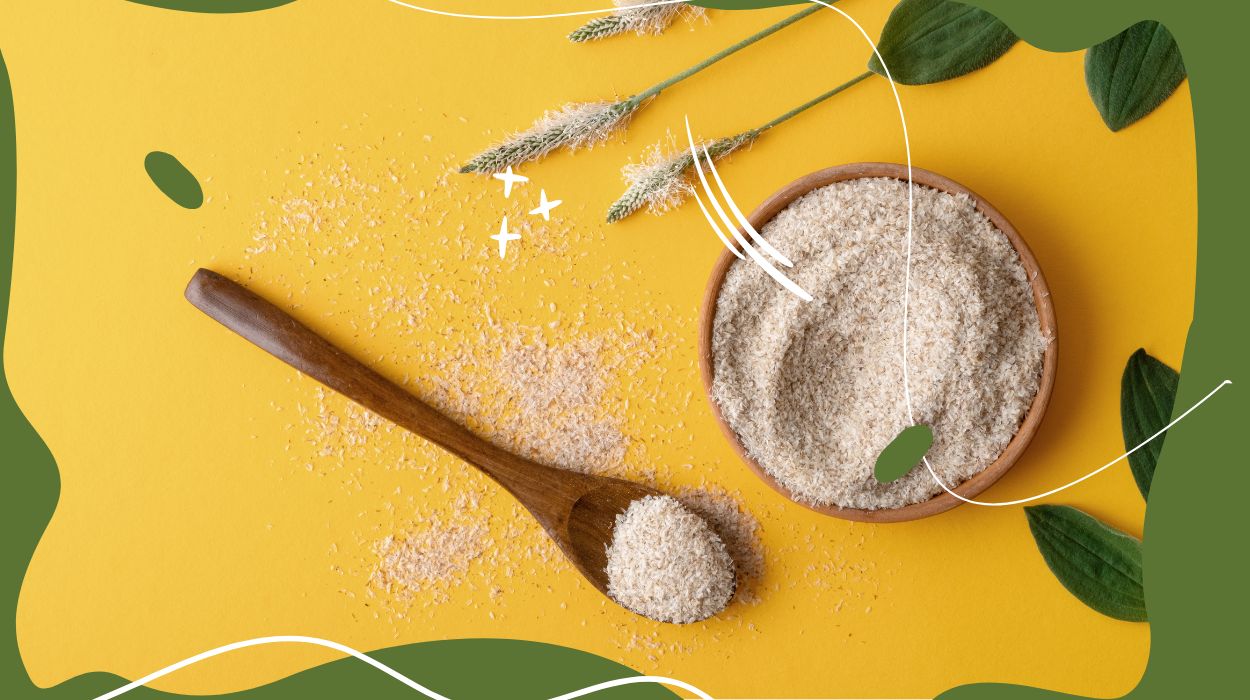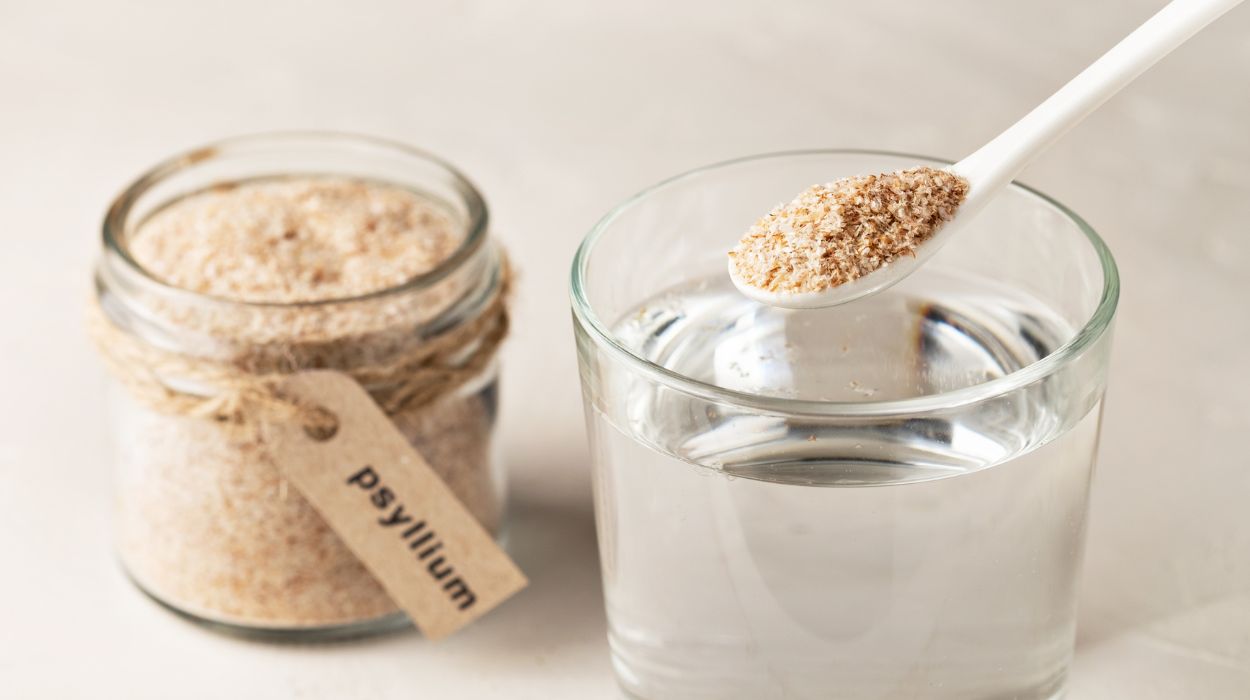 Expert's opinion
Expert's opinion
Expert's opinion
The article is a subjective view on this topic written by writers specializing in medical writing.
It may reflect on a personal journey surrounding struggles with an illness or medical condition, involve product comparisons, diet considerations, or other health-related opinions.
Although the view is entirely that of the writer, it is based on academic experiences and scientific research they have conducted; it is fact-checked by a team of degreed medical experts, and validated by sources attached to the article.
The numbers in parenthesis (1,2,3) will take you to clickable links to related scientific papers.
Psyllium Husk For Weight Loss 2024 – Does Psyllium Husk Help With Weight Loss?

Fiber is one of the most underutilized health and weight loss ingredients available. With its ability to slow sugar absorption into the bloodstream and help you feel fuller longer, it’s one of the best ways to help your body manage its appetite and its digestive and hormonal functioning.
Psyllium husk is a type of soluble fiber that’s now being researched as a weight loss and health supplement. What makes it special is that it has practically no other macro-nutrients like sugar or fat, and unlike vegetables, you can consume psyllium husk in supplement form rather than eaten.
Read on to find out how psyllium husk weight loss could help with weight loss and the amount you’d need to make it effective.
Does Psyllium Husk Help With Weight Loss?
Psyllium husk comes from the seeds of the plant Plantago ovata and was originally used as a type of laxative thanks to its high fiber content. It’s still one of the main ingredients in most laxative formulas today. Taking it in supplement form can offer a lower dosage that helps with daily bowel movements and contributes to weight management, gut, and heart health.
Psyllium husks are a fiber-rich ingredient that can be useful to lose weight. Fiber helps your stool bulk up, which is why it’s a great ingredient in most over-the-counter laxatives and helps make bowel movement easier.
How To Take Psyllium Husk For Weight Loss?
If you hate vegetables and have a hard time getting enough dietary fiber in your diet, psyllium fiber may be a great addition to your supplement routine and weight loss journey.
Psyllium husk, in particular, absorbs the liquid in your intestinal tract, helping you to feel full. This is a great way to begin to notice full cues more quickly since it helps you stay full longer. This can be especially useful by effectively helping to increase satiety levels for people who constantly feel hungry.
For aiding weight loss, studies recommend[1] consuming psyllium husk about 20 minutes before meals with a glass of water. Your brand will also list on the bottle the recommended dosage for the day. Since psyllium absorbs water, drinking more with the supplement can help prevent intestinal issues.

How Much Psyllium Husk For Weight Loss?
Some studies[2] show the benefits of taking 5 grams of psyllium twice daily for blood sugar control. However, it’s best to follow the product instructions. It’s also very important to slowly increase the amount of fiber you’re consuming to give your digestive system time to adapt. Otherwise, a quick increase in the amount of fiber consumed could create a laxative effect with irregular bowel movements or diarrhea.
How Much Fiber Should I Eat?
The total recommended daily amount of fiber is 25 grams per day. Studies show that this number may be on the lower end, and those interested in weight loss would benefit from at least 30 grams daily, with up to 50 grams[3] possible. The amount needed depends on the person, age, physical activity, weight, and height, as well.
If you also consume 5-10 fruits and vegetables a day, you will easily be able to meet the 25-gram minimum recommendation. One banana, for example, has 2.6 grams of fiber, an apple or a cup of broccoli has 2.4 grams, and a cup of carrots has 3 grams. Most fruit and vegetable superfoods have high amounts of soluble fiber present. Even if you get 25 grams of fiber from food, psyllium husk can still be helpful for weight loss since most people benefit from added fiber.
Does Psyllium Husk Cause Weight Gain?
If you’re worried about losing weight while adding a bulking ingredient to your diet, psyllium husk works to reduce body weight, constipation, glucose homeostasis, cholesterol levels, and overall lipid profile. It effectively helps weight loss by having an overall beneficial effect[1] on the body.
Other Health Benefits Of Psyllium Husk
Psyllium husk, and fiber in general, is important for much more than weight loss alone. There are many benefits to getting enough fiber, such as
Improved Digestion
While psyllium husk is a type of bulk-forming laxative, smaller dosages can work to create more regular bowel movements and improve the digestion process. It can also be helpful for people with difficulties passing hard stool since psyllium has been shown to create softer stools.
People with IBS often have difficulty digesting many foods, and a fiber-rich diet with psyllium works to decrease symptoms. Adding fiber also comes with a healthy gut, which is also important for improving digestive issues and other chronic health conditions.
Better Gut Health, Immunity, And Mood
While probiotics have become a popular supplement, prebiotics, i.e., fiber, is often ignored but much needed to go alongside probiotics, i.e., beneficial bacterial strains. Prebiotics provide the nutrients and environment to help healthy bacteria grow. Both pre-and probiotics can aid weight loss by creating healthy intestinal flora, which leads to regular bowel movements, easier digestion, and even less stress.
With stress — and binge eating becoming one of the most common types of eating disorders — a healthy gut can go a long way to improving your mood and helping to manage difficult emotions more easily.
Finally, gut bacteria are directly tied to the immune system. With healthy gut flora, your body is better able to fight infections and inflammation and contribute to healthy cell and tissue maintenance.
Blood Sugar And Diabetes Maintenance
For those with type 2 diabetes, studies show[4] that glucose absorption slows significantly with the consumption of psyllium husks. Fasting plasma glucose lowers with 5 grams of psyllium and can be a helpful addition to a healthy diet for diabetes management. Overall, blood glucose levels are better maintained, support weight loss, hunger pangs, and energy levels.
Increased Heart Health
Soluble fiber benefits are a well-researched topic known to help improve heart health and decrease the risk of coronary heart disease.[5] To this, it’s primarily shown to be helpful by lowering cholesterol and triglyceride levels.
A 2010 study[6] in the British Journal of Nutrition showed that adding psyllium supplements to a normal diet resulted in a cholesterol reduction. This was corroborated by a more recent 2019 study.[7] Benefits were highest, of course, when paired with a fiber-rich diet, such as vegetables and fruit.
Safety & Precautions
As always, all supplements should be cleared with your physician before trying. Psyllium may interact with other medications and decrease their absorption. Psyllium may even interact with vitamins or minerals, making it all the more important to speak with your doctor first and list all supplements or medications you’re currently taking.
You should consult your doctor first[8] if you have any health condition, are pregnant or breastfeeding, or are on a specific diet, such as low-sugar or low-sodium. If you’re going to mix psyllium husk powder, be careful not to breathe in the psyllium powder since it may cause a reaction when inhaled.[8]
If you’ve never taken psyllium before, it’s recommended to start with a lower dosage and slowly increase it over the course of a few weeks. Your body will need time to adapt to the increase in fiber and new ingredients it’s never had before.
Side Effects
Since most people eating the standard American diet don’t get enough soluble dietary fiber, quickly increasing the amount eaten can cause intestinal distress. Some of the most common side effects of taking too much psyllium or adding fiber too quickly include:
- Gas.
- Bloating.
- Diarrhea.
- More frequent bowel movements.
- Loose stools.
- Nausea and vomiting.
- Stomach or abdominal pain and cramps.
To avoid becoming dehydrated, drinking plenty of water is also important whenever adding more soluble fibers to your diet. Fiber’s tendency to attract water into your intestinal tract means less water in the rest of your body.
Risks
When you first begin taking psyllium husk supplements, or any supplement, watch out for any allergic reaction,[9] such as
- Difficulty swallowing or breathing.
- Swelling around the face and throat.
- Rashes or hives.
- Itchy skin or eyes.
- Vomiting.
Psyllium is well-tolerated by most people, but allergic reactions can appear and develop at any time.
The Bottom Line
Psyllium husk and many other fiber supplements can be helpful for weight loss and overall health. It’s been shown to improve gut and heart health, help with diabetes management, and increase the likelihood of regular bowel movements. All these benefits, put together, make losing weight much easier.
About 5 grams a day is helpful, with the most benefits coming from combining it with a diet rich in fruits and vegetables.
There are some reported risks associated with psyllium, such as allergic reactions, abdominal pain, gas, and bloating. It’s best to slowly increase the amount of fiber eaten or taken in fiber supplement form to allow the body to adapt. Otherwise, laxative-type effects may be likely.
+ 9 sources
Health Canal avoids using tertiary references. We have strict sourcing guidelines and rely on peer-reviewed studies, academic researches from medical associations and institutions. To ensure the accuracy of articles in Health Canal, you can read more about the editorial process here
- McRorie, J.W., Gibb, R.D., Sloan, K.J. and McKeown, N.M. (2021). Psyllium. Nutrition Today, [online] 56(4), pp.169–182. doi:10.1097/nt.0000000000000489.
- Ziai, S.A., Larijani, B., Akhoondzadeh, S., Fakhrzadeh, H., Dastpak, A., Bandarian, F., Rezai, A., Badi, H.N. and Emami, T. (2005). Psyllium decreased serum glucose and glycosylated hemoglobin significantly in diabetic outpatients. Journal of Ethnopharmacology, [online] 102(2), pp.202–207. doi:10.1016/j.jep.2005.06.042.
- O’Keefe, S.J.D. (2018). The Need to Reassess Dietary Fiber Requirements in Healthy and Critically Ill Patients. Gastroenterology Clinics of North America, [online] 47(1), pp.219–229. doi:10.1016/j.gtc.2017.10.005.
- Sierra, M., José Alejos García, Nélida Fernández, M. José Diez and Calle, Á.P. (2002). Therapeutic effects of psyllium in type 2 diabetic patients. [online] 56(9), pp.830–842. doi:https://doi.org/10.1038/sj.ejcn.1601398.
- Rodrı́guez-MoránM., Guerrero-Romero, F. and Lazcano-Burciaga, G. (1998). Lipid- and Glucose-Lowering Efficacy of Plantago Psyllium in Type II Diabetes. Journal of Diabetes and its Complications, [online] 12(5), pp.273–278. doi:10.1016/s1056-8727(98)00003-8.
- Pal, S., Khossousi, A., Binns, C., Dhaliwal, S. and Ellis, V. (2010). The effect of a fibre supplement compared to a healthy diet on body composition, lipids, glucose, insulin and other metabolic syndrome risk factors in overweight and obese individuals. British Journal of Nutrition, [online] 105(1), pp.90–100. doi:10.1017/s0007114510003132.
- Dong, Y., Xu, M., Chen, L. and Bhochhibhoya, A. (2019). Probiotic Foods and Supplements Interventions for Metabolic Syndromes: A Systematic Review and Meta-Analysis of Recent Clinical Trials. Annals of Nutrition and Metabolism, [online] 74(3), pp.224–241. doi:10.1159/000499028.
- Medlineplus.gov. (2015). Psyllium: MedlinePlus Drug Information. [online] Available at: https://medlineplus.gov/druginfo/meds/a601104.html
- Gillespie, B.F. and Rathbun, F.J. (1992). Adverse effects of psyllium. CMAJ : Canadian Medical Association journal = journal de l’Association medicale canadienne, [online] 146(1), pp.16–7. Available at: https://www.ncbi.nlm.nih.gov/pmc/articles/PMC1488199/?page=1



